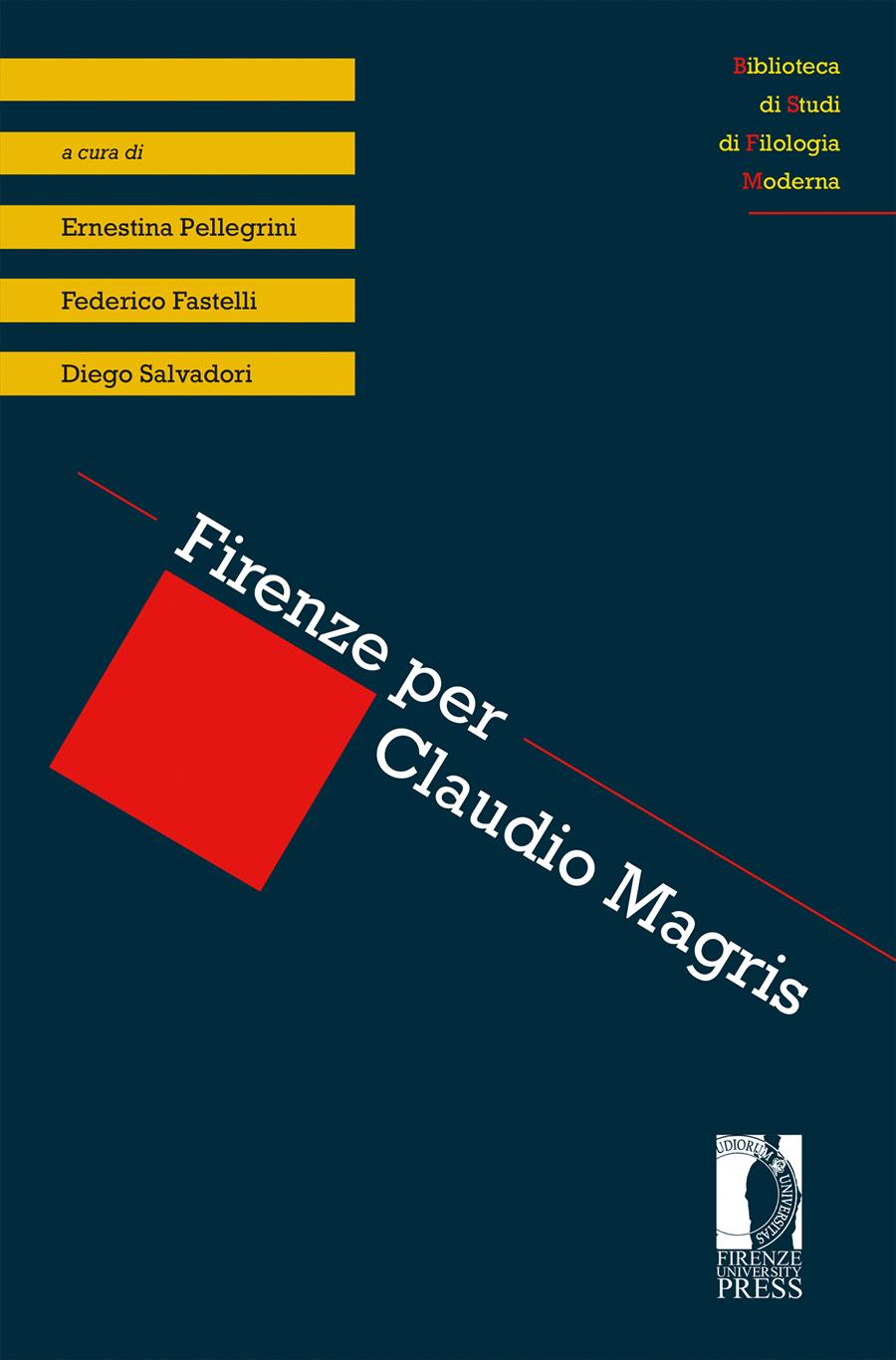- Firenze per Claudio Magris
- Edited by Ernestina Pellegrini, Federico Fastelli, Diego Salvadori
Vineta del Danubio. La letteratura tedesca in Tempo curvo a Krems
- Vivetta Vivarelli
- © 2021 Author(s) |
- CC BY 4.0
- DOI: 10.36253/978-88-5518-338-3.13
The five stories in Magris’s Tempo curvo a Krems contain indirect references to the German and Mitteleuropean literatures that nourished their author. They are not merely echoes or resonances: allusions such as to the legend of Vineta, the city beneath the sea, or to Heine’s poem about the troubadour Rudèl and Melisanda, as well as to Faustian themes and the longing for transformation («die and become») are closely linked to the central theme of a circular and recurring time. The lightly ironic tone is nonetheless a bulwark against the spleen, the «Sehnsucht» or the recollection and regret of the past; a past that resurfaces and continues to echo like the tolling of a submerged bell.
- Keywords:
- Faustian Themes,
- Legend of Vineta,
- Mitteleuropean Literature,
- Sources,
- Tempo curvo a Krems,
University of Florence, Italy - ORCID: 0000-0002-3800-175X
- Fontane, Theodor. 1998 (1895). “Effi Briest. Roman.” In Theodor Fontane. Große Brandenburger. Ausgabe Das erzählerische Werk, hrsg. in Zusammenarbeit mit dem Theodor-Fontane-Archiv Potsdam. Editorische Betreuung Christine Hehle, Bd. XV. Berlin: Aufbau Verlag.
- Goethe, Johann W. 2006 (1832). “Faust I.” In Johann W. Goethe. Sämtliche Werke nach Epochen seines Schaffens, hrsg. von Karl Richter. München: Münchner Ausgabe.
- Heine, Heinrich. 1975 (1825-26). “Die Nordsee.” In Heinrich Heine. Historisch-kritische Gesamtausgabe der Werke (DHA), hrsg. von Manfred Windfuhr. Bd. I, Teil I. Hamburg: Hoffmann und Campe.
- Heine, Heinrich. 1973 (1827). “Reisebilder (Die Nordsee. Dritte Abtheilung).” In Heinrich Heine. Historisch-kritische Gesamtausgabe der Werke (DHA), hrsg. von Manfred Windfuhr. Bd. VI. Hamburg: Hoffmann und Campe.
- Magris, Claudio. 1982. “Flaubert e il libro su niente.” In Claudio Magris. Itaca e oltre, 16-22. Milano: Garzanti.
- Magris, Claudio. 1999 (1982). “Lo stile del padre, lo stile del figlio.” In Claudio Magris. Utopia e disincanto, 143-7. Milano: Garzanti.
- Magris, Claudio. 1997. Microcosmi. Milano: Garzanti.
- Magris, Claudio. 2005. L’infinito viaggiare. Milano: Mondadori.
- Magris, Claudio. 2012. Opere, a cura e con uno scritto introduttivo di Ernestina Pellegrini e uno scritto di Maria Fancelli. vol. I. Milano: Mondadori.
- Magris, Claudio. 2017. “L’adolescenza lieve di Trieste.” Corriere della Sera, 5 settembre, 2017.
- Magris, Claudio. 2019. Tempo curvo a Krems. Cinque racconti. Milano: Garzanti.
- Magris, Claudio. 2020. “Indifesi perché smemorati: chi ignora il passato non sa affrontare l’oggi.” Il Corriere della Sera, 23 febbraio, 2020 <https://www.corriere.it/cultura/20_febbraio_23/indifesi-perche-smemorati-chi-ignora-passato-non-sa-affrontare-l-oggi-393a84c4-5610-11ea-b447-d9646dbdb12a.shtml>.
- Marin, Biagio. 1965. Dopo la longa istae. Milano: All’Insegna del Pesce d’Oro.
- Montale, Eugenio. 1984. “Cigola la carrucola del pozzo.” In Eugenio Montale. Tutte le poesie, a cura di Giorgio Zampa. Milano: Mondadori.
- Müller, Wilhelm. 1968 (1906). “Vineta.” In Wilhelm Müller. Gedichte. Vollständige kritische Ausgabe, hrsg. von James Taft Hatfield. Liechtenstein: Neudruck Nendeln, 1825.
- Nietzsche, Friedrich. 1980 (1882). “Die fröhliche Wissenschaft.” In Friedrich Nietzsche. Sämtliche Werke. Kritische Studienausgabe, hrsg. von Giorgio Colli, und Mazzino Montinari. Bd. III. München: Deutscher Taschenbuch Verlag.
- Poincaré, Henri. 1890. “Sur le problème des trois corps et les équations de la dynamique.” Acta mathematica 13, 1-2: 1-270.
- Stuparich, Giani. 2019 (1929). Un anno di scuola. Macerata: quodlibet.
Chapter Information
Chapter Title
Vineta del Danubio. La letteratura tedesca in Tempo curvo a Krems
Authors
Vivetta Vivarelli
Language
Italian
DOI
10.36253/978-88-5518-338-3.13
Peer Reviewed
Publication Year
2021
Copyright Information
© 2021 Author(s)
Content License
Metadata License
Bibliographic Information
Book Title
Firenze per Claudio Magris
Editors
Ernestina Pellegrini, Federico Fastelli, Diego Salvadori
Peer Reviewed
Publication Year
2021
Copyright Information
© 2021 Author(s)
Content License
Metadata License
Publisher Name
Firenze University Press
DOI
10.36253/978-88-5518-338-3
eISBN (pdf)
978-88-5518-338-3
eISBN (xml)
978-88-5518-339-0
Series Title
Biblioteca di Studi di Filologia Moderna
Series E-ISSN
2420-8361
